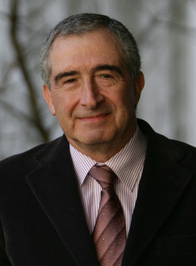19 March 2013
Professor elected to prestigious United Nations human rights role

Professor Sir Nigel Rodley
Professor Sir Nigel Rodley has been elected Chair of the Human Rights Committee at the United Nations - a hugely influential body which oversees and champions human rights standards in states across the globe.
Sir Nigel, who is Chair of the Human Rights Centre at the University of Essex, is a leading expert on human rights and international law and in his new role he will chair the18-strong committee of independent experts who monitor the implementation of the International Covenant on Civil and Political Rights, one of the cornerstones of international human rights law.
Sir Nigel, who previously served as the Committee’s Vice-Chair from 2002 to 2004 then 2008 to 2010, said: “It is a great honour to be elected by one's colleagues. The election comes at a time when the Committee and its sister bodies under other UN human rights treaties are under review.
“As Chair of the Committee over the next two years, I will be required to play a key role in ensuring that we are in a better position than now to help protect the victims of human rights violations.”
Sir Nigel was elected to the role of Chair at the 107th session of the Committee.
The Committee has great moral authority due to its independence, international membership and ability to speak with a single, global voice.
A total of 167 UN member states have ratified the International Covenant on Civil and Political Rights and must submit regular reports on how they are meeting its requirements. The Committee examines each report and feeds back any concerns or recommendations.
More than 100 states have also ratified or acceded to the First Optional Protocol and have agreed to allow people within their jurisdiction to complain to the Committee if they believe a country has violated the International Covenant on Civil and Political Rights. In these countries, the Human Rights Committee functions as a mechanism for the international redress of human rights abuses, similar to the way the Inter-American Court of Human Rights or the European Court of Human Rights operate.
The Committee can also consider some complaints made by a state against another state.
The United Nations Human Rights Committee usually meets three times a year for four-week sessions to consider the five-yearly reports submitted by UN member states and to examine individual petitions in relation to the First Optional Protocol.
Ends
For more information contact the University of Essex Communications Office on 01206 874377 or e-mail: comms@essex.ac.uk.
...more news releases